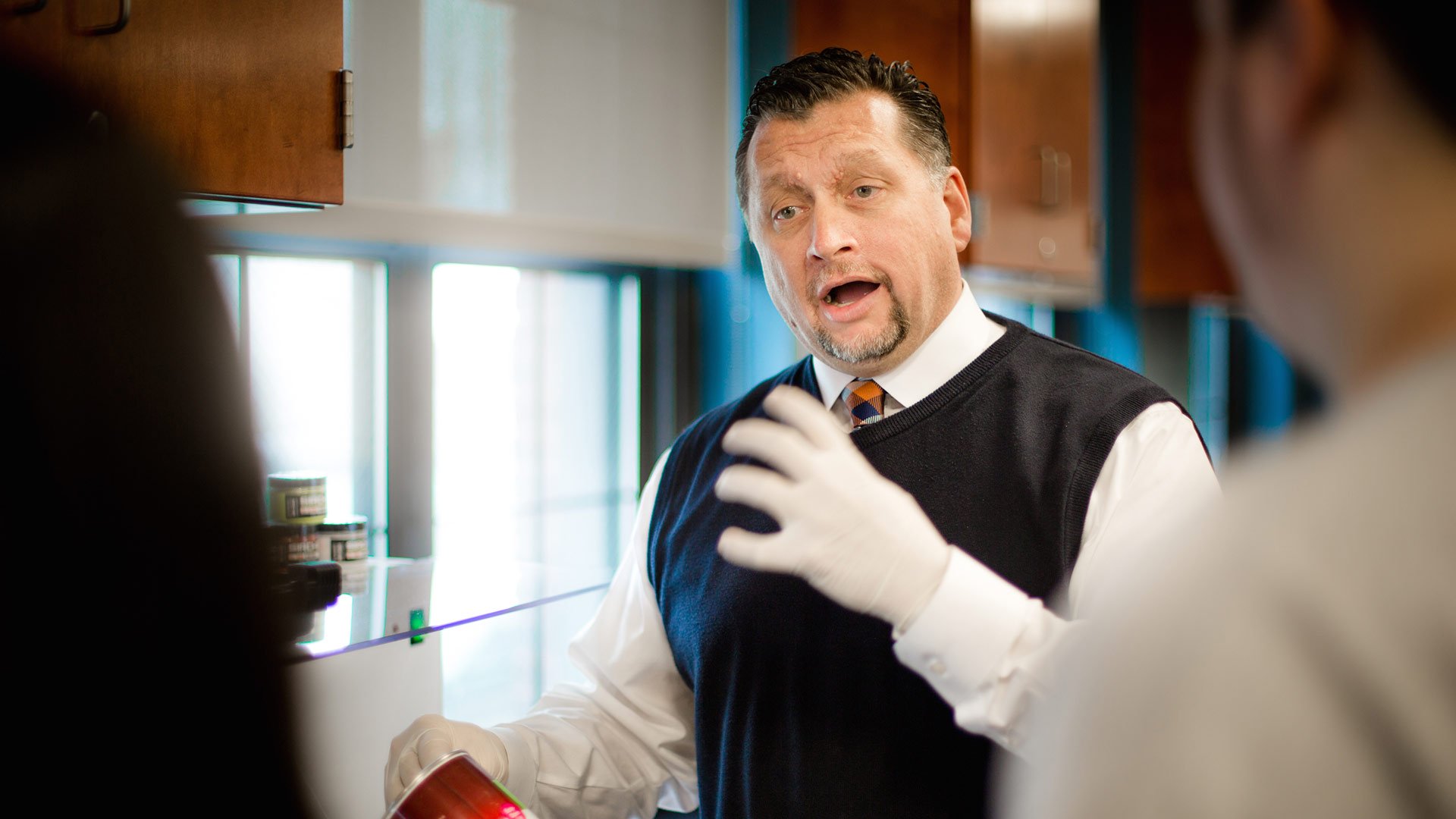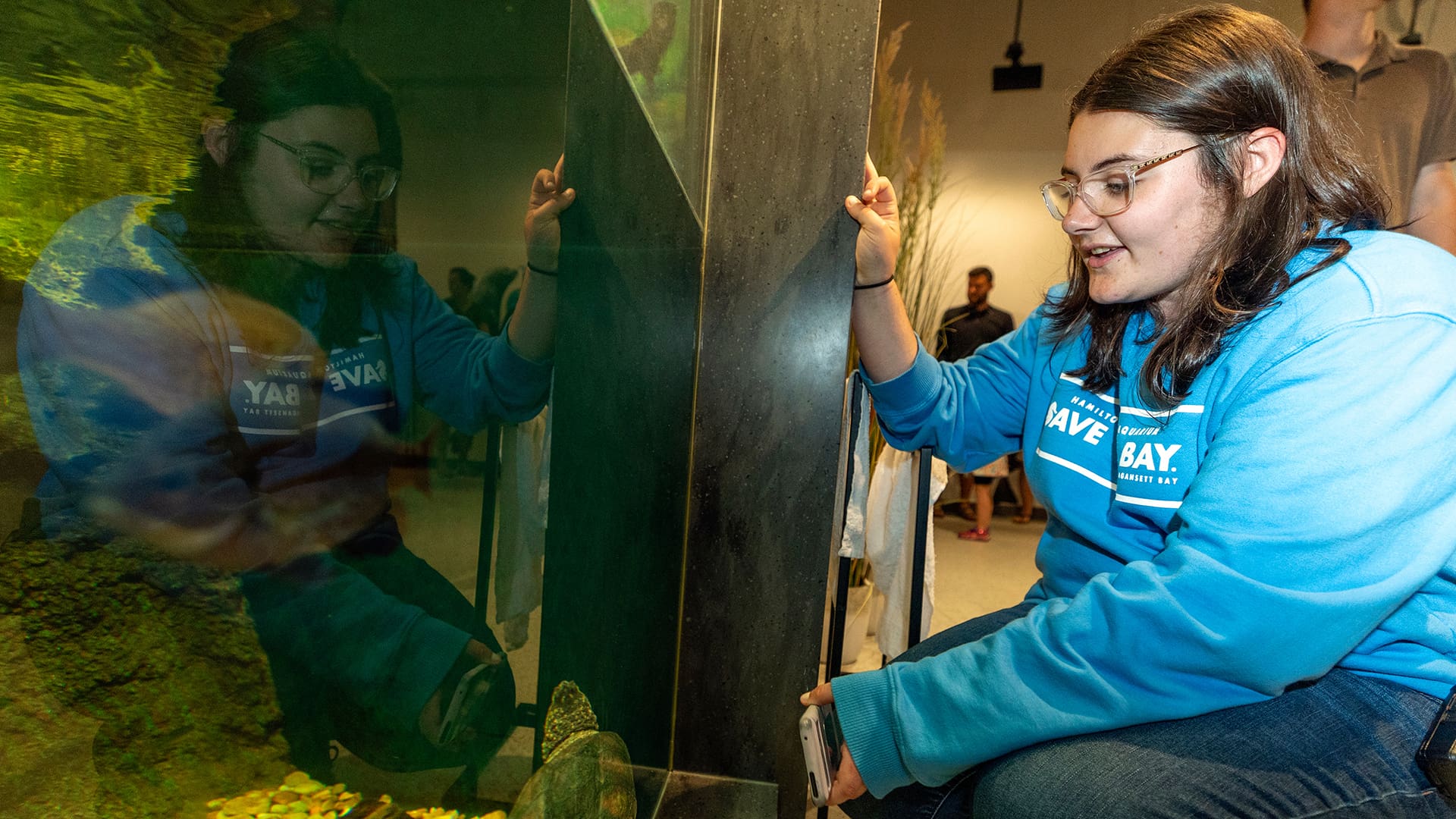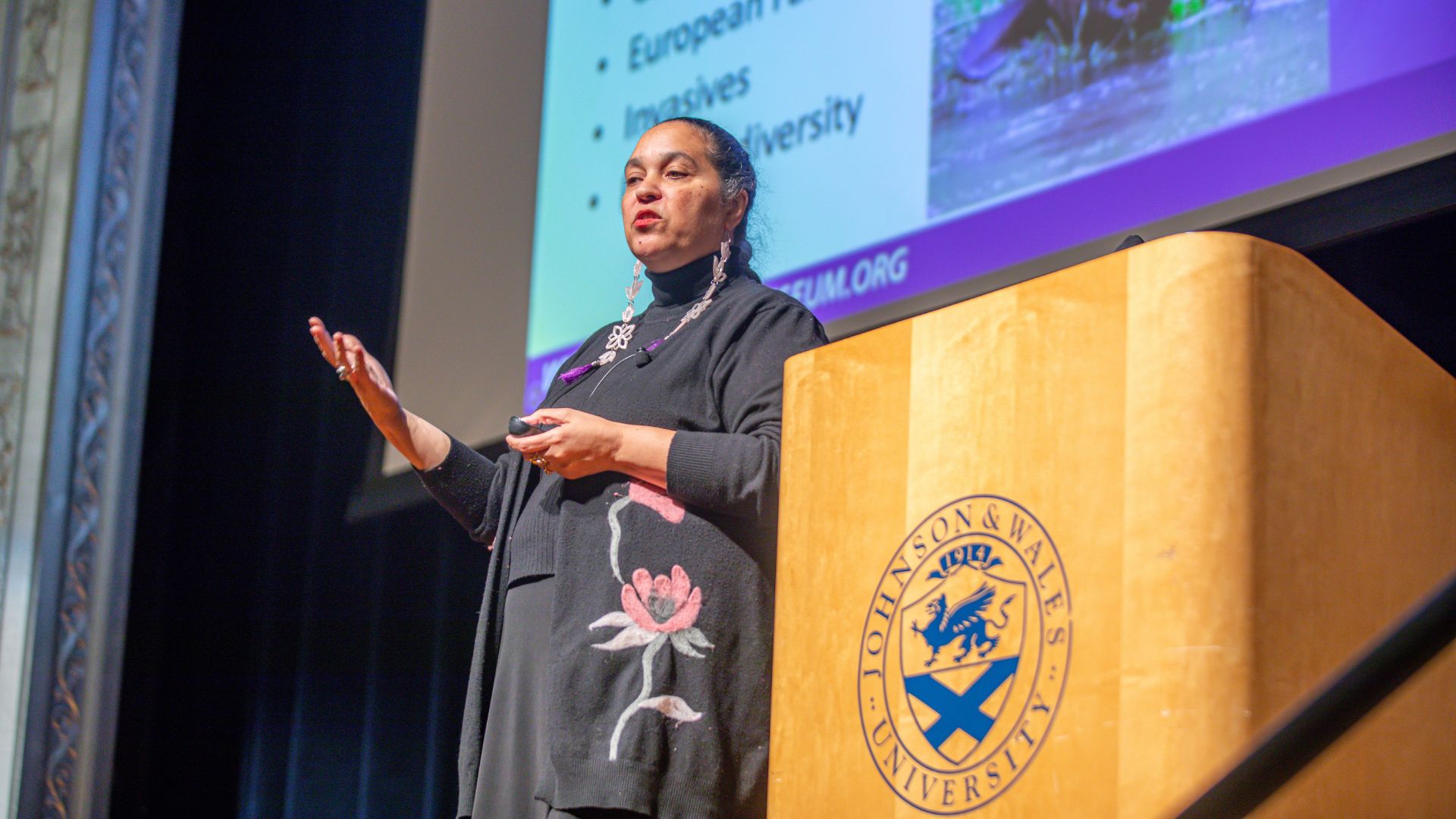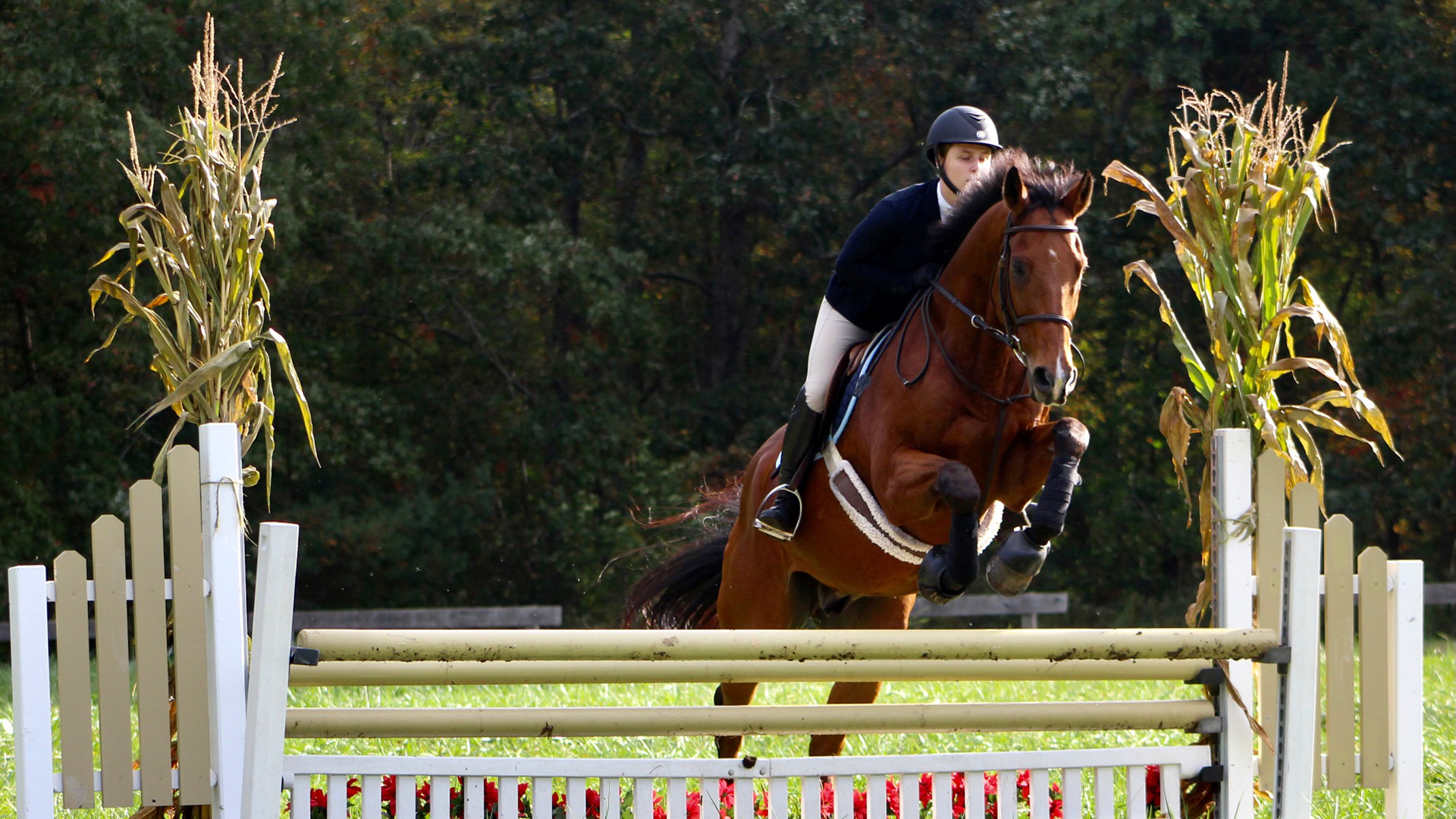Paul Sylvestre: A Positive Force for JWU

The birds are chirping on a crisp morning in Pawtucket as Paul Sylvestre washes his face and glances into the mirror. As he readies for a day of work he examines his reflection, and a smile finds its way to his lips. He notes that his beard has grown well out of order, but he needn’t shave it soon. When he steps out onto the street on his way to his dream job as an undercover narcotics officer for the Pawtucket Police Department, the only thing that will belong to him will be his first name, Paul.
“I was always buying drugs,” says Sylvestre, recalling a day in the life of an undercover narcotics officer. “Every day was a new deal,” he says before pausing to appreciate the residual adrenaline from the job.
Today, Sylvestre is an associate professor with a Ph.D. and Chair of the Criminal Justice department at Johnson & Wales University.
"I was always buying drugs. Every day was a new deal."
Ever since he was a kid, Sylvestre longed to be a part of law enforcement. He says that all the police shows he watched on television as a child — “Adam-12” and “Dragnet” — led him down this path, and he would not have changed it for the world.
In all, Sylvestre spent 22 years in law enforcement, with the first three as a beat patrol officer. He describes being a patrol officer as not at all like television, because, “sometimes nothing comes on the radio.”
Born and raised in Pawtucket, retired detective Sylvestre is the epitome of the “good cop” although he will tell you he does not like the word “cop.” He sees it as informal and even disrespectful. Tall, well-dressed, and authoritative, Sylvestre brings a uniformity with him everywhere he goes.
Sylvestre has never used a drug in his life. “It wasn’t in my nature,” he says. This made it a challenge for him to know prices, packaging, and code names for drugs. There was a real “learning curve,” he recalls, adding that there was no formal training for going undercover. But Sylvestre, who never shies away from a challenge, quickly caught on. After years undercover, which he describes as “a rush, like a game,” he continued in the narcotics division and soon he was going on drug raids with his K-9 unit and Abby, a drug-sniffing Golden Labrador.
"Undercover is a rush, like a game."
When Sylvestre left the police force in 2008, and Abby was getting on in years, they retired together and Sylvestre brought Abby home to live with him and his two children. Hired as an assistant professor at Johnson & Wales University in 2011, Sylvestre brought with him extensive knowledge about the ins and outs of policing, undercover work, and drug raids.

One especially sensitive topic to Sylvestre is police brutality. His appearance and the way he carries himself has an almost intimidating air, but Sylvestre is anything but that. He takes a totally different stance on police brutality than what an observer might first think. Sylvestre believes that the lack of communication is the reason there is so much police violence. He says that if police officers explained themselves upfront when stopping an individual, that would diffuse the potential for a violent outcome.
He also believes a lot of police lack education and, therefore, find it hard to communicate, which is one of the reasons he teaches Criminal Justice. He believes that students can benefit greatly from learning from someone who has spent so much time in the field and he can give them insight that textbooks lack.
"My job is my job, not who I am."
Sylvestre spent over two decades enforcing the law, and now he loves teaches it. Being a professor is especially important to him because of the myriad issues that separate police from the public today. During his time as an officer, he noticed that many officers lived, breathed, and were so consumed by their jobs. “My job is my job, not who I am,” he says, adding that this helped him create a real balance in his life. Too often, he says, the police align their total identity with their jobs and take on this “tough guy” approach. Sylvestre believes this lack of balance can lead to bad decision-making out in the field. He believes police need better education, ways to unload stress, and must learn to disconnect their professional lives from their personal identities.
“It’s all about self-awareness,” he says. Sylvestre also believes guns are never necessary unless life is threatened. “Guns are a last resort, not a first response,” he says.
These are the kinds of things Sylvestre instills in his Criminal Justice students at JWU. He knows his industry well, his colleagues and students respect him, and his goal now is just one thing: to shape the next generation of law enforcement individuals into a positive force. A force that communicates with the public and earns the trust and respect that he believes law enforcement deserves.



